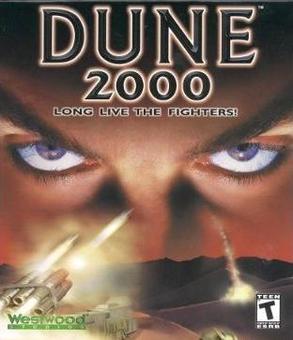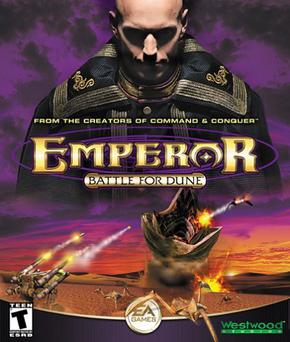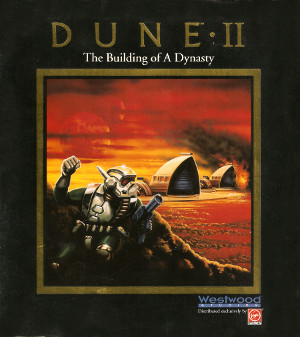
Dune is a 1984 American epic space opera film written and directed by David Lynch, and based on the 1965 novel of the same name by Frank Herbert. It was filmed at the Churubusco Studios in Mexico City. The soundtrack was composed by the rock band Toto, with a contribution from Brian Eno. Its large ensemble cast includes Kyle MacLachlan, Patrick Stewart, Brad Dourif, Dean Stockwell, Virginia Madsen, José Ferrer, Sean Young, Sting, Linda Hunt, and Max von Sydow.

Dune is a 1965 epic science fiction novel by American author Frank Herbert, originally published as two separate serials in Analog magazine. It tied with Roger Zelazny's This Immortal for the Hugo Award for Best Novel and won the inaugural Nebula Award for Best Novel in 1966. It is the first installment of the Dune Chronicles. It is one of the world's best-selling science fiction novels.

Melange, often referred to as "the spice", is the fictional psychedelic drug central to the Dune series of science fiction novels by Frank Herbert and derivative works.

The Fremen are a group of people in the fictional Dune universe created by Frank Herbert. First appearing in the 1965 novel Dune, the Fremen inhabit the desert planet Arrakis, which is the sole known source in the universe of the all-important spice melange. Long overlooked by the rest of the Imperium and considered backward savages, they are an extremely hardy people and exist in large numbers. The Fremen had come to the planet thousands of years before the events of the novel as the Zensunni Wanderers, a religious sect in retreat. As humans in extremis, over time they adapted their culture and way of life to survive and thrive in the incredibly harsh conditions of Arrakis. The Fremen are distinguished by their fierce fighting abilities and adeptness at survival in these conditions. With water being a rare commodity on the planet, their culture revolves around its preservation and conservation. Herbert based Fremen culture, in part, on the desert-dwelling Bedouin and San People.

The Spacing Guild is an organization in Frank Herbert's science fiction Dune universe that possesses a monopoly on interstellar travel and banking. Guild Navigators use the drug melange to achieve limited prescience, a form of precognition that allows them to successfully navigate "folded space" and safely guide enormous starships called heighliners across interstellar space instantaneously.

Arrakis —informally known as Dune and later called Rakis—is a fictional desert planet featured in the Dune series of novels by Frank Herbert. Herbert's first novel in the series, 1965's Dune, is considered one of the greatest science fiction novels of all time, and it is sometimes cited as the best-selling science fiction novel in history.

4X is a subgenre of strategy-based computer and board games, and includes both turn-based and real-time strategy titles. The gameplay generally involves building an empire. Emphasis is placed upon economic and technological development, as well as a range of military and non-military routes to supremacy.

Princess Irulan is a fictional character in the Dune universe created by Frank Herbert. She first appears in Dune (1965), and is later featured in Dune Messiah (1969) and Children of Dune (1976). The character's birth and early childhood are touched upon in the Prelude to Dune prequel trilogy (1999–2001) by Herbert's son Brian, and Kevin J. Anderson, and she is a principal character in the Herbert/Anderson series Heroes of Dune (2008–2009).
Dune is an American science fiction media franchise that originated with the 1965 novel Dune by Frank Herbert and has continued to add new publications. Dune is frequently described as the best-selling science fiction novel in history. It won the inaugural Nebula Award for Best Novel and the Hugo Award in 1966 and was later adapted into a 1984 film, a 2000 television miniseries, and a two-part film series with the first film in 2021 and a sequel in 2024. Herbert wrote five sequels, the first two of which were concomitantly adapted as a 2003 miniseries. Dune has also inspired tabletop games and a series of video games. Since 2009, the names of planets from the Dune novels have been adopted for the real-world nomenclature of plains and other features on Saturn's moon Titan.

Dune is a 1992 adventure strategy game based on the 1965 science-fiction novel of the same name by Frank Herbert. It was developed by Cryo Interactive and published by Virgin Interactive.

Dune 2000 is a real-time strategy video game, developed by Intelligent Games and published by Westwood Studios in 1998 for Microsoft Windows. It was later ported to the PlayStation in 1999. It is a partial remake of Dune II, which is loosely based on Frank Herbert's Dune universe. The story of the game is similar to Dune II, and is continued in Emperor: Battle for Dune.

Emperor: Battle for Dune is a real-time strategy video game, released by Westwood Studios in June 2001. It is based in Frank Herbert's science fiction Dune universe. It follows its predecessors, Dune II and Dune 2000. While Dune II was a distinct story to that of Dune, and Dune 2000 was a remake of Dune II, Emperor: Battle for Dune is a direct sequel to the previous games. In particular, it is a sequel to Dune 2000, carrying on from where it left off, with several of the characters and actors returning. Like Dune 2000 and many of the other Westwood games that came before it, Emperor features live action cut scenes filmed with actors.

Dune II: The Building of a Dynasty is a 1992 real-time strategy game developed by Westwood Studios and published by Virgin Games. It serves as the sequel to Dune, which came out earlier that same year.

Dune is a strategy board game set in Frank Herbert's Dune universe, published by Avalon Hill in 1979. The game was designed by Bill Eberle, Jack Kittredge and Peter Olotka. After many years out of print, the game was reissued by Gale Force Nine in 2019 in advance of the 2021 Dune film adaptation.

Dune is an out-of-print collectible card game produced by Last Unicorn Games and Five Rings Publishing Group, and later Wizards of the Coast. Set in the Dune universe based on the books written by Frank Herbert, the game pits two or more players against each other, each in control of a minor house vying for entry in the Landsraad.
This is a list of terminology used in the fictional Dune universe created by Frank Herbert, the primary source being "Terminology of the Imperium", the glossary contained in the novel Dune (1965).

Multiple organizations of the Dune universe dominate the political, religious, and social arena of the setting of Frank Herbert's Dune series of science fiction novels, and derivative works. Set tens of thousands of years in the future, the saga chronicles a civilization which has banned computers but has also developed advanced technology and mental and physical abilities through physical training, eugenics and the use of the drug melange. Specialized groups of individuals have aligned themselves in organizations focusing on specific abilities, technology and goals. Herbert's concepts of human evolution and technology have been analyzed and deconstructed in at least one book, The Science of Dune (2008). His originating 1965 novel Dune is popularly considered one of the greatest science fiction novels of all time, and is frequently cited as the best-selling science fiction novel in history. Dune and its five sequels by Herbert explore the complex and multilayered interactions of politics, religion, ecology and technology, among other themes.
We've a three-point civilization: the Imperial Household balanced against the Federated Great Houses of the Landsraad, and between them, the Guild with its damnable monopoly on interstellar transport.
Dune: Imperium is a 2020 board game designed by Paul Dennen and published by Dire Wolf Digital. In the board game, which is set in Frank Herbert's Dune universe, players use deck-building and worker placement to gain alliances with factions and combat to earn victory points. Upon its release, the game was nominated for several awards, including the Kennerspiel des Jahres.
















